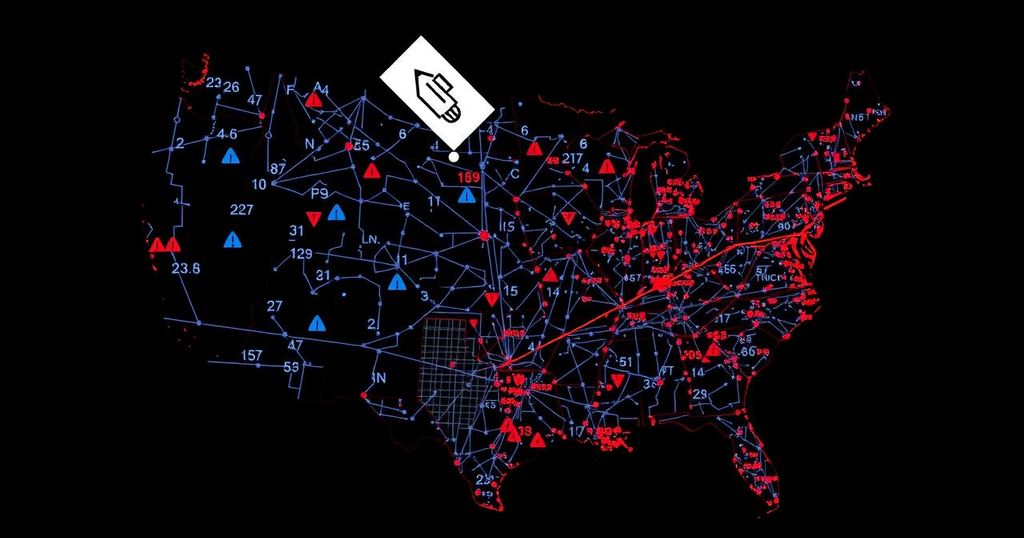Foreign threats to the integrity of the U.S. election are increasing, exemplified by hacking, disinformation campaigns, and the likelihood of violent protests. Russia is leading these efforts, targeting candidates and spreading false narratives, while Iran engages in similar cyber operations. China’s interference is perceived to be more superficial, focused on candidates aligned with its interests. U.S. officials are responding proactively to disclose these threats and ensure the security of the election process.
Foreign interference in the upcoming U.S. presidential election is intensifying, with heightened activity reported from nations such as Russia, China, and Iran. Recent incidents include hacking a presidential candidate’s phone, the dissemination of manipulated videos portraying illegal actions surrounding ballots, and warnings from national security officials about the potential for violent protests instigated by these adversaries after Election Day. In response, U.S. officials, technology firms, and independent researchers are taking decisive action to expose these foreign threats, employing lessons learned from previous election cycles which revealed the vulnerabilities of American political systems to disinformation and cyber attacks. Despite assertions that the U.S. election framework remains secure against substantial foreign electoral manipulation, it is acknowledged that authoritarian regimes are utilizing disinformation to sway public opinion and fuel division among voters. Russia has emerged as a primary threat, characterized by its sophisticated disinformation campaigns that exploit contentious issues to undermine election integrity and polarize the electorate. Intelligence assessments indicate that Russia has aligned with former President Donald Trump, conducting efforts to trick unwitting influencers into promoting pro-Russian narratives and actively discrediting his opponent, Vice President Kamala Harris, through fabricated video content. Concurrently, Iran is engaging in aggressive hacking operations targeting individuals associated with Trump’s campaign while seeking to leak damaging information to the media to hinder his re-election efforts. Iran’s history with American leaders further complicates its perceived motives as it has openly pledged response against U.S. actions viewed as hostile. In contrast, while China appears to be adopting a more neutral position, officials note that it has a longstanding history of extensive cyber-espionage, indicating ongoing risks to U.S. election integrity. This cycle of interference, reminiscent of tactics employed in prior elections, underscores the evolving landscape of foreign policy challenges to American democratic processes. The U.S. government has taken enhanced measures to illuminate these threats and reaffirm the security of the electoral system in an effort to mitigate foreign influence during this pivotal time.
The issue of foreign interference in U.S. elections has been a growing concern, particularly following the events of 2016, where significant incidents of hacking and disinformation raised alarms across the political spectrum. National security assessments have evolved to recognize the intricate methods employed by adversaries like Russia, China, and Iran, who utilize cyber operations, disinformation, and social polarization to destabilize American democratic processes. The heightened vigilance and proactive measures taken by officials reflect an urgent need to safeguard the electoral system amidst re-emerging threats ahead of the November election.
In summary, foreign interference poses a complex and escalating threat to the integrity of the upcoming U.S. elections, with Russia, Iran, and China employing various tactics to disrupt and manipulate public perception. Efforts by U.S. officials to expose these threats and reassure the public about election security are crucial as the democratic process unfolds. Stakeholders must remain vigilant against such interference and actively combat misinformation to protect the sanctity of the electoral process.
Original Source: apnews.com







